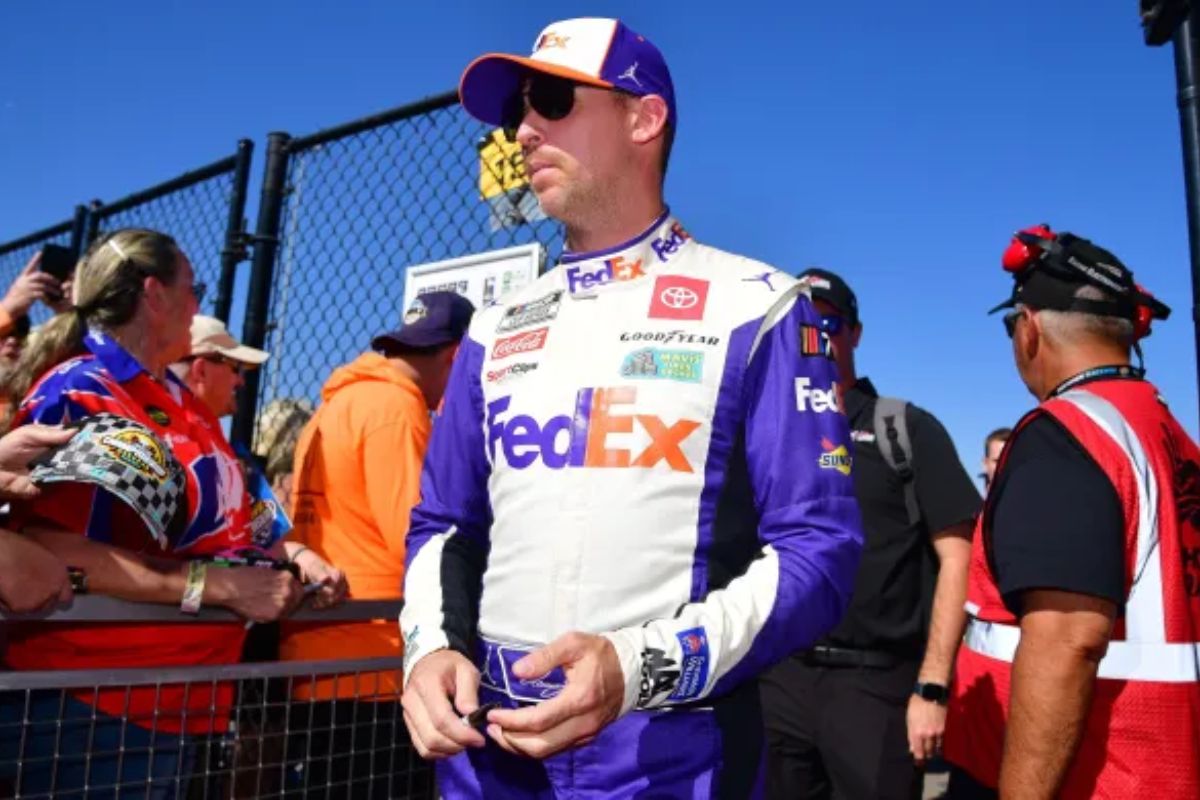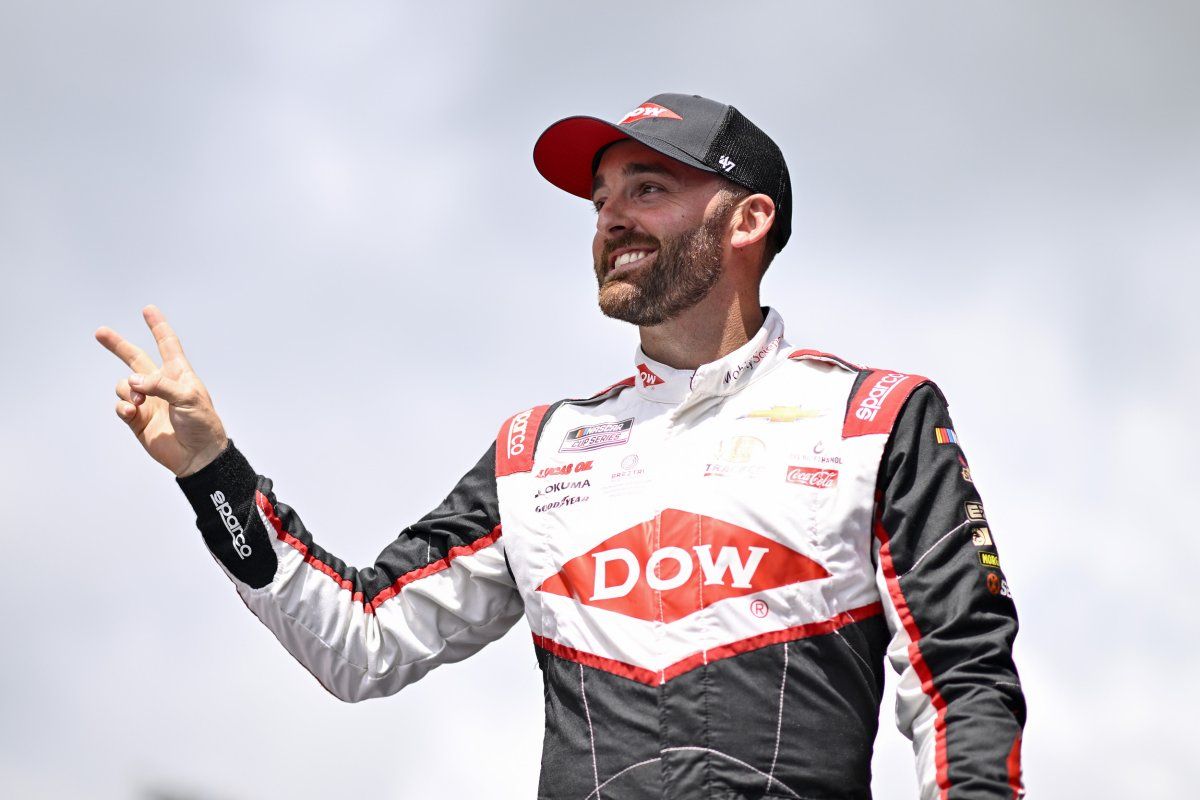Denny Hamlin Warns Nascar’s Future: Denny Hamlin‘s recent commentary on the implications of Austin Dillon‘s crash raises critical questions about NASCAR’s direction amidst growing controversies surrounding racing tactics. By highlighting the delicate balance between aggressive competition and reckless endangerment, Hamlin emphasizes a crucial moment for the sport that could determine its integrity and relationship with fans. As concerns mount regarding the enforcement of safety protocols, the implications of these incidents extend far beyond the racetrack. What measures can NASCAR implement to restore trust, and is the sport prepared to confront the challenges ahead?
Key Highlights
- Denny Hamlin supports NASCAR’s penalties against Dillon, stressing the need for clear distinctions between aggressive racing and reckless behavior.
- Concerns about crash controversies may undermine NASCAR’s credibility and fan trust, necessitating discussions on rule changes and safety protocols.
- The inconsistency in race officials’ judgments complicates defining aggression versus recklessness, affecting the sport’s integrity.
- Hamlin emphasizes the importance of maintaining competitive boundaries to preserve the sport’s future and integrity.
- Ongoing discussions about regulations and safety are essential to address potential challenges facing NASCAR moving forward.
Austin Dillon’s Controversial Victory at Richmond
Amid the backdrop of NASCAR‘s competitive landscape, Austin Dillon‘s unexpected victory at Richmond has sparked considerable debate. Over the past two years, Dillon had struggled to assert himself as a strong contender in the Cup Series, making his success seem unlikely. However, his use of Goodyear’s option tires positioned him favorably, creating an opportunity to end a 68-race winless streak. Dillon’s aggressive tactics, particularly during the crucial moments following a caution flag, emphasized a tactical shift that momentarily paid off.
Yet, this victory was short-lived, as NASCAR subsequently intervened, stripping Dillon of the win due to a violation of race protocols. This decision has raised critical questions about the integrity of the sport and the criteria that govern race outcomes. Dillon’s approach, while audacious, highlights the often precarious balance between risk and regulation in NASCAR. The enforcement of penalties in this instance signals NASCAR’s commitment to maintaining a level playing field, yet it simultaneously casts a shadow over the legitimacy of Dillon’s performance.
The ramifications of this incident extend beyond Dillon himself; it challenges NASCAR’s operational framework and the expectations of its fan base. As the sport navigates the complexities of competitive integrity, the fallout from Dillon’s controversial win will likely influence how future races are perceived and adjudicated, highlighting the need for clarity in rules and their enforcement.
Denny Hamlin Defends NASCAR’s Decision
In the wake of Austin Dillon’s controversial victory at Richmond, Denny Hamlin has emerged as a vocal advocate for NASCAR’s decision to penalize Dillon. Hamlin’s stance emphasizes a critical distinction between aggressive racing and reckless behavior, a nuance that is crucial for the integrity of the sport. Following Dillon’s actions, which resulted in spinning both Hamlin and Joey Logano, the repercussions were immediate; NASCAR imposed a points penalty, lowering Dillon’s standing and stripping him of playoff eligibility.
Hamlin articulated his position in a pre-race press conference, highlighting the importance of maintaining a clear boundary in competitive racing. He stated, “If two cars are battling side-by-side and one of them hits the wall because of close racing, that is going to be deemed okay.” This sentiment reflects an understanding that the essence of racing often involves fine margins and risk.
However, he firmly rejected the notion that a driver can resort to wrecking others to secure a win, declaring, “I think that is a clear line in the sand.”
This defense of NASCAR’s decision is not merely about penalizing Dillon; it is about safeguarding the sport’s future. By reinforcing standards of conduct, NASCAR can uphold the competitive spirit while discouraging tactics that threaten the safety and sportsmanship inherent in racing.
Challenges of Judging Aggressive Tactics
The complexities of enforcing penalties in NASCAR arise from the inherent ambiguity in differentiating aggressive tactics from reckless behavior. Denny Hamlin’s recent remarks emphasize the challenges that arise when attempting to navigate this fine line. Both he and Joey Logano have resorted to bump-and-run strategies, yet the circumstances of each instance can vary considerably, making consistent judgment difficult.
“But sometimes balls and strikes aren’t totally clear. There is one right on the edge, and you have to call it, but it is up to us to make the decision. Do we want to put ourselves in that position where it could be called one way or the other? I think that you just have to live with the result. I think if NASCAR polices it and intentional wrecks for the win going forward, there are going to be some close calls.”-(hamlin)
The following factors contribute to the challenges of evaluating aggressive tactics in NASCAR:
- Contextual Variability: The situational context of each race can influence perceptions of what constitutes aggressive versus reckless behavior.
- Historical Precedents: Previous incidents involving the same drivers can color interpretations, complicating the evaluation of intent.
- Subjectivity of Officials: The interpretation of actions often relies on the subjective judgment of race officials, leading to inconsistencies.
- Driver Reactions: The emotional responses of drivers involved can skew public and official perceptions of what transpired.
- Impact of the Outcome: The consequences of a strategy, such as whether it results in a crash or victory, can frame the discussion around the appropriateness of the tactic.
As Hamlin aptly noted, the decision-making process is filled with potential pitfalls, as NASCAR must tread carefully to maintain fairness while preserving the competitive spirit of the sport.
This delicate balance is vital for the league’s integrity, particularly given heightened questioned following recent incidents, such as Austin Dillon’s controversial actions.
Consequences for Austin Dillon
Austin Dillon’s recent actions have resulted in considerable repercussions for both himself and the No. 3 Richard Childress Racing team, highlighting the crucial importance of maintaining discipline within the sport. Following the Cook Out 400 race, NASCAR’s decision to classify Dillon’s behavior as “actions detrimental to stock car auto racing” emphasizes the league’s commitment to upholding integrity. As a direct consequence, Dillon and his team incurred notable point deductions, effectively eliminating him from the playoff race.
The ramifications extend beyond Dillon, impacting the entire No. 3 team. Spotter Brandon Benesch faced a three-race suspension for his inflammatory directive to “wreck him!” over the radio, a move that not only jeopardized team standings but also raised questions about the culture of racing tactics within the sport. This incident serves as a cautionary tale, illustrating how impulsive decisions can unravel hard-earned progress.
While Dillon still maintains a resilient demeanor, the broader context reveals an opportunity for other drivers. With 12 playoff spots already claimed, the opening created by Dillon’s misstep allows contenders like Bubba Wallace to vie for a coveted position in the final races.
Dillon’s situation serves as a glaring reminder that in the high-stakes world of NASCAR, actions have profound consequences, not only for individual drivers but for the integrity of the sport itself.
Austin Dillon’s Perspective and Playoff Hopes
Dillon faces the upcoming races with steadfast confidence despite the recent setback. His perspective is shaped not only by experience but also by a commitment to his team and a refusal to dwell on past mistakes. As he prepares for the critical Michigan race, Dillon’s steadfast mindset is evident in his reflections on the challenges ahead.
“I’ve learned a lot from Denny and Joey over the years. They don’t have any regrets (over) what they do on the race track and I can’t either. I don’t feel that way. I’m not going to say I regret anything because I didn’t. I went to sleep and felt really good about everything I had to do for me and my team.”-(austin)
Despite his confidence, the road to the playoffs is filled with obstacles, particularly from formidable competitors. Dillon recognizes the need for tactical racing and consistent performance to secure his playoff aspirations.
Key considerations for Dillon include:
- Learning from Experience: He acknowledges the lessons gleaned from seasoned drivers like Denny Hamlin and Joey Logano, emphasizing the importance of a fearless approach on the track.
- Team Dynamics: The synergy within his team plays a significant role in enhancing performance, as mutual support and communication are fundamental for success.
- Adaptability: Dillon must remain flexible, adjusting strategies to navigate the unique challenges presented by each race.
- Performance Metrics: Consistent top-10 finishes will be essential in accumulating points and establishing his position in playoff competition.
- Mental Fortitude: Maintaining a positive mindset is crucial, particularly as external stress mounts in the quest for playoff eligibility.
As Dillon gears up for Michigan, his resolve and tactical outlook will be instrumental in determining whether he can overcome the odds and secure a coveted playoff spot.
News in Brief: Denny Hamlin Warns Nascar’s Future
The recent crash controversy involving Austin Dillon has sparked considerable concerns regarding NASCAR’s integrity and future viability. Denny Hamlin’s call for a reassessment of safety protocols emphasizes the need for clear distinctions between competitive aggression and reckless behavior. The ongoing discourse highlights the potential erosion of fan trust if unresolved issues persist. Ultimately, maintaining competitive integrity is crucial for NASCAR’s credibility and sustainability in the rapidly evolving landscape of motorsport.
ALSO READ: Denny Hamlin Silences Journalist Over Disrespect to NASCAR Cup Stars



